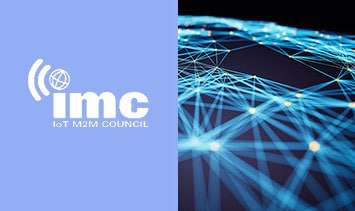Electric vehicle (EV) adoption is accelerating, being driven by:
- Declining costs
- Technological advancements
- Robust government policies
Still, the successful transition to EVs depends on the reliable, secure infrastructure availability.
Downtime or poor cellular connectivity can cause significant revenue loss for EVs and EV charging operators. In addition, the more EVs and charging stations there are, the broader the attack surface is for hackers.
Reliable remote connectivity can ensure EVs enable a stable exchange between EVs and the power grid. Moreover, firmware over-the-air (FOTA) updates can repair bugs and update security to protect against cyberattacks.
This webinar explores how crucial connectivity is to overcoming obstacles with EV charging and the user experience.
EV Adoption: Market Trends and Challenges
The EV charging market has been growing rapidly. In 2022, 10% of passenger vehicles sold worldwide were electric, a significant increase compared to 2017. Norway is leading the world, with 80% of vehicle sales being EVs. Iceland, Sweden and the Netherlands are following suit with 25% to 40% new EV sales.
We examine this growth and the trends, including infrastructure investments and environmental policies. We also explore the continuous challenges, such as changing government policies and charging infrastructure.
EV Charging and the Internet of Things
The Internet of Things (IoT) underpins charging systems’ functionality and reliability. We will show you how it enables critical communication and reliable connectivity between EV chargers and the grid to:
- Perform remote monitoring and maintenance
- Balance the load
- Provide accurate billing
- Ensure a positive customer experience
- Reduce charge anxiety
- Maintain brand loyalty
Connectivity Standards and Protocols
Our discussion will cover three standards and protocols necessary for EV charging:
- The Open Charging Point Protocol (OCPP): The OCPP ensures effective network management for charging stations.
- ISO 15118: This standard improves charging security and automation by supporting vehicle and grid communication.
- The Open Smart Charging Protocol (OSCP): The OSCP helps grid operators balance energy management.
Wireless Connectivity and Robust EV Charging Station Design
This webinar discusses two important aspects of wireless connectivity in EV charging: technology advancements and design obstacles. We explore technologies from LTE Cat M to 5G that support dependable EV charging infrastructure communication. In addition, we discuss the importance of careful planning and design to mitigate connectivity challenges and ensure reliable connectivity.
EV Adoption and Connectivity Use Cases and Trends
In this session, we show successful use cases of integrating wireless technology into EV charging infrastructure. We also discuss the trends shaping the future of reliable connectivity and EV charging. You’ll see how standards and protocols drive EV charging solution adoption and how LTE and 5G are shaping its future.
Key Takeaways
Join Telit Cinterion to explore the benefits and challenges of IoT connectivity for EVs and EV charging stations. We discuss the role of secure, reliable communications in the EV charging ecosystem.
In this webinar, you will learn:
- The connectivity obstacles EV charging faces and how to overcome them
- The technology and design considerations necessary to future-proof the EV charging infrastructure
- The importance of always-on connectivity for critical infrastructure


